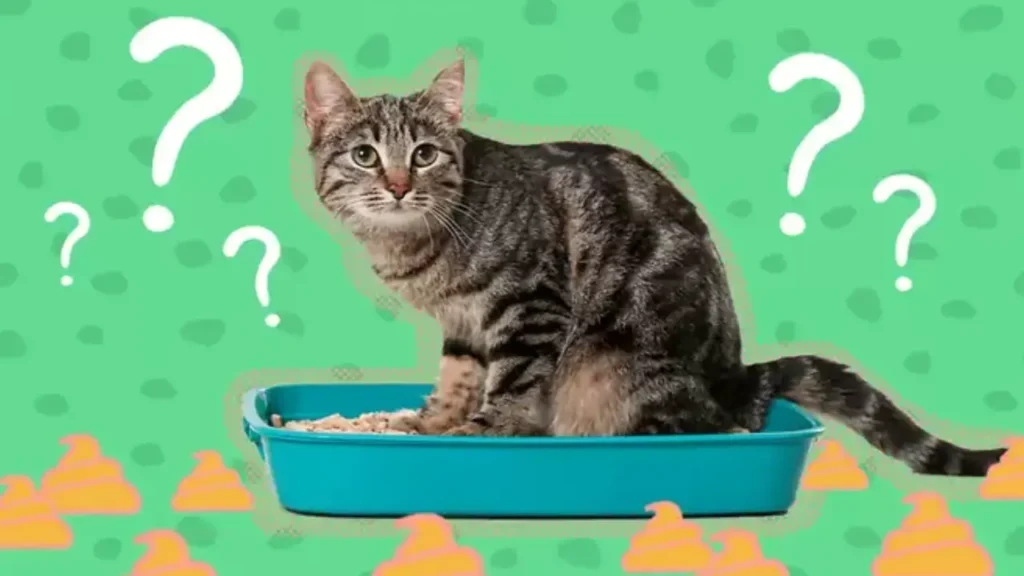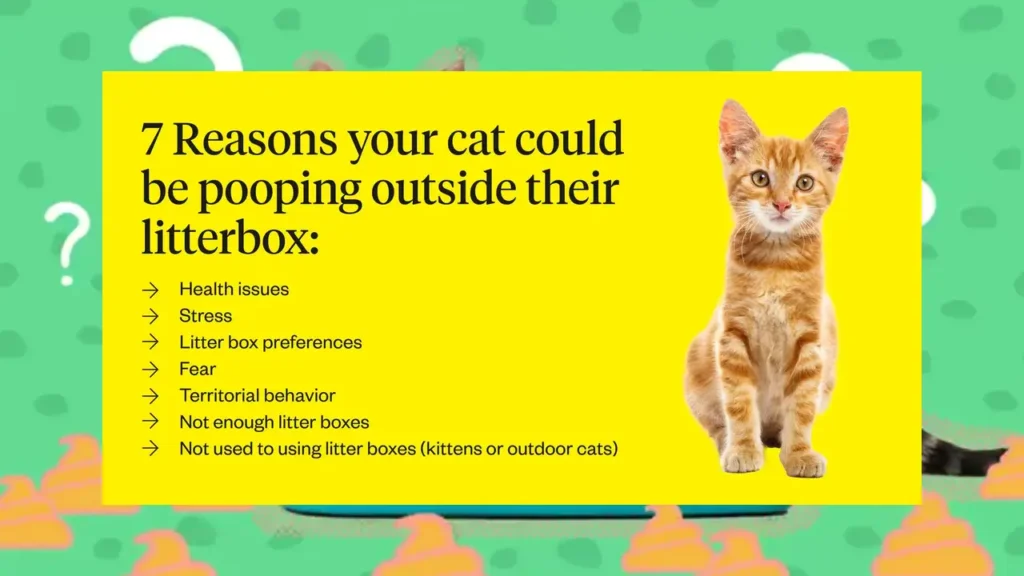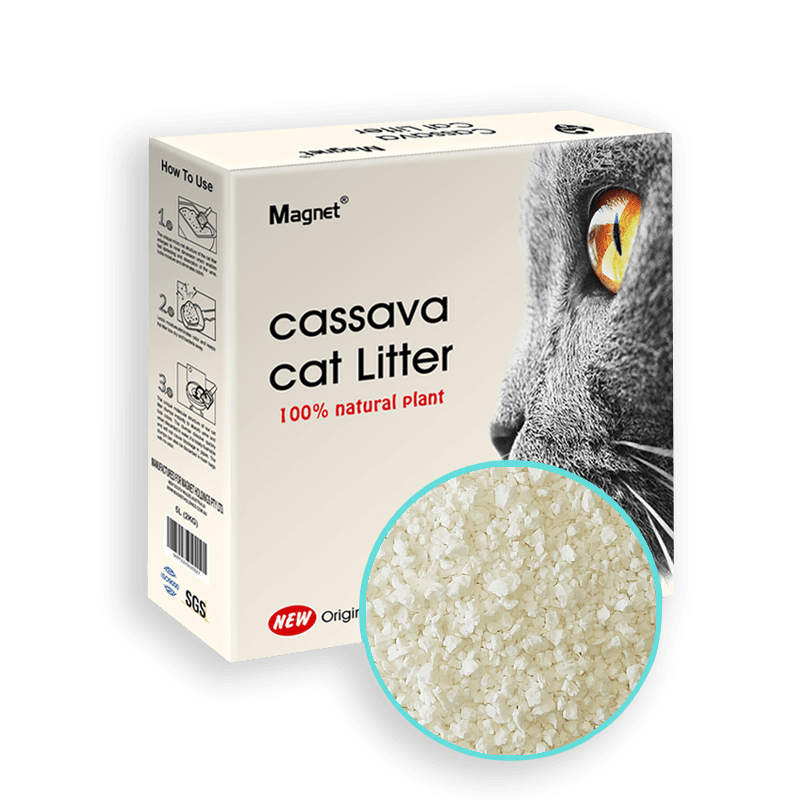Dealing with a cat that’s pooping outside the litter box can be a frustrating and perplexing experience. This behavior can often indicate underlying issues, such as health problems, stress, or environmental factors.
In this blog post, we’ll explore the common reasons why cats might choose to defecate outside their designated litter box. We’ll also provide practical tips and advice on how to address this issue and encourage your cat to use the litter box as intended.
Why is My Cat Pooping Outside the Litter Box

What causes a cat to poop outside the litter box? There are several reasons why your cat might be pooping outside the litter box.
Here are some common causes, explained in detail:
1. Medical Issues:
- Urinary tract infections (UTIs): Cats with UTIs may experience pain or discomfort when urinating, leading them to avoid the litter box. Symptoms of UTIs can include frequent urination, straining, blood in the urine, and lethargy.
- Constipation or diarrhea: Digestive problems can make it difficult for cats to use the litter box. Constipation can cause pain and straining, while diarrhea can lead to accidents.
- Arthritis or mobility issues: Cats with joint pain or other mobility problems may find it difficult to reach the litter box. This can cause them to eliminate in more accessible areas.
- Feline lower urinary tract disease (FLUTD): FLUTD is a common condition that can cause pain and discomfort in the urinary tract. Cats with FLUTD may avoid the litter box due to pain or difficulty urinating.
2. Litter Box Problems:
- Litter box cleanliness: Dirty litter boxes can be off-putting to cats. Cats are naturally clean animals, and they may refuse to use a dirty litter box.
- Litter types: Some cats may dislike the texture or scent of certain types of litter. Experiment with different litters to find one that your cat prefers.
- Litter box location: The litter box should be in a quiet, private location away from food and water. Avoid placing it in areas where your cat may feel stressed or threatened.
- Number of litter boxes: If you have multiple cats, you may need more than one litter box. A general rule of thumb is to have one more litter box than the number of cats in your household.
3. Behavioral Issues:
- Stress or anxiety: Cats can experience stress from changes in their environment, new pets, or other factors. This stress can lead to behavioral problems, including inappropriate elimination.
- Territorial disputes: If you have multiple cats, territorial conflicts can lead to inappropriate elimination. Cats may mark their territory by urinating or defecating outside the litter box.
- Punishment: Punishing your cat for accidents can worsen the problem. Cats may associate punishment with the litter box, making them even more reluctant to use it.
If your cat is consistently pooping outside the litter box, it’s important to consult with a veterinarian to rule out any underlying medical conditions. Once medical issues have been addressed, you can focus on addressing behavioral or environmental factors.
Cat Poops in Litter Box but Pees on Floor
It can be frustrating and confusing when your cat seems to be using the litter box for solid waste but is still urinating outside it. There are several potential reasons for this behavior:
1. Medical Issues:
- Urinary tract infections (UTIs): UTIs can cause pain and discomfort when urinating, leading cats to avoid the litter box.
- Feline lower urinary tract disease (FLUTD): FLUTD can cause inflammation or obstruction of the urinary tract, making it difficult or painful to urinate.
- Kidney disease: Kidney problems can affect a cat’s ability to control their bladder.
2. Litter Box Problems:
- Litter box cleanliness: A dirty litter box can be off-putting to cats.
- Litter type: Some cats may dislike the texture or scent of certain types of litter.
- Litter box location: The litter box should be in a quiet, private location away from food and water.
- Litter box size: The litter box may be too small for your cat.
3. Behavioral Issues:
- Stress or anxiety: Changes in the environment, new pets, or other factors can cause stress and anxiety in cats, leading to behavioral problems.
- Territorial disputes: If you have multiple cats, territorial conflicts can lead to inappropriate elimination.
- Punishment: Punishing your cat for accidents can worsen the problem.
If your cat is consistently peeing outside the litter box, it’s important to consult with a veterinarian to rule out any underlying medical conditions. Once medical issues have been addressed, you can focus on addressing behavioral or environmental factors.
Here are some tips to help you resolve this issue:
- Clean the litter box regularly: Scoop out solid waste daily and change the litter completely at least once a week.
- Experiment with different litter types: Try using a different type of litter to see if it makes a difference.
- Adjust the location of the litter box: Make sure the litter box is in a quiet, private location away from food and water.
- Consider adding more litter boxes: If you have multiple cats, you may need more than one litter box.
- Create a calm and stress-free environment for your cat: Provide plenty of hiding places and scratching posts to help your cat feel safe and secure.
By addressing the underlying causes of this behavior, you can help your cat return to using the litter box as intended.
How to Stop a Cat From Pooping Outside Litter Box

If your cat is consistently pooping outside the litter box, it can be frustrating and concerning. Here’s a detailed guide to help you address this issue:
1. Consult a Veterinarian:
- Rule out medical conditions: A veterinarian can examine your cat to determine if there are any underlying health problems, such as:
- Urinary tract infections (UTIs)
- Constipation or diarrhea
- Arthritis or mobility issues
- Feline lower urinary tract disease (FLUTD)
2. Clean the Litter Box Regularly:
- Daily maintenance: Scoop out solid waste daily to prevent odors and keep the litter box clean.
- Weekly cleaning: Change the litter completely at least once a week to prevent bacterial buildup.
- Use a gentle cleaning agent: If necessary, use a mild, pet-safe cleaning agent to disinfect the litter box.
3. Experiment with Different Litter Types:
- Texture and scent preferences: Cats may have specific preferences for the texture and scent of their litter. Experiment with different types to find one that your cat likes.
- Clumping vs. non-clumping: Some cats prefer clumping litter for its ease of cleanup, while others may prefer non-clumping options.
- Natural vs. synthetic: Consider using natural or eco-friendly litters if your cat has sensitivities or allergies.
4. Adjust the Location of the Litter Box:
- Privacy and accessibility: Ensure the litter box is in a quiet, private location away from food and water sources.
- Avoid high traffic areas: Cats may be hesitant to use the litter box if it’s in a noisy or chaotic area.
- Accessibility for older cats: If your cat is older or has mobility issues, make sure the litter box is easy to access.
5. Consider Adding More Litter Boxes:
- Multiple cats: If you have multiple cats, provide one more litter box than the number of cats.
- Territorial disputes: Additional litter boxes can help reduce territorial conflicts and prevent inappropriate elimination.
6. Create a Calm and Stress-Free Environment:
- Reduce stress: Provide plenty of hiding places, scratching posts, and toys to help your cat feel safe and secure.
- Avoid changes: Minimize sudden changes in your cat’s environment, as these can cause stress.
7. Avoid Punishment:
- Positive reinforcement: Punishing your cat for accidents can worsen the problem. Instead, reward your cat with treats or praise when they use the litter box correctly.
By addressing these factors and providing a suitable litter box environment, you can help your cat return to using the litter box as intended. If you continue to have issues, consulting with a veterinarian or a feline behaviorist can provide additional guidance.
Can You Flush Cat Poop and Litter Down the Toilet
No, you should not flush cat poop and litter down the toilet.
Here are the reasons why:
- Sewage system clogs: Cat litter, especially clumping varieties, can clog your pipes and sewage system.
- Environmental concerns: Flushing cat waste can release harmful bacteria and parasites into the environment.
- Health risks: These bacteria and parasites can contaminate water sources and pose a health risk to humans and other animals.
Instead, dispose of cat poop and litter in a sealed garbage bag and place it in the trash. This will help prevent clogs and protect the environment.
Conclusion
Dealing with a cat that’s pooping outside the litter box can be frustrating and concerning. However, by identifying the underlying causes and taking appropriate steps, you can help your cat return to using the litter box as intended.
Remember to:
- Consult a veterinarian to rule out any medical issues.
- Maintain a clean litter box and experiment with different litter types.
- Provide a suitable litter box environment in a quiet, private location.
- Consider adding more litter boxes if needed.
- Create a calm and stress-free environment for your cat.
- Avoid punishment and focus on positive reinforcement.
Need help finding the perfect cat litter for your feline friend? Contact us today for wholesale cat litter options that meet your specific needs and budget. Our high-quality litters are designed to provide exceptional performance and ensure a happy and healthy environment for your cat.









